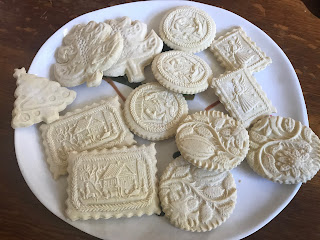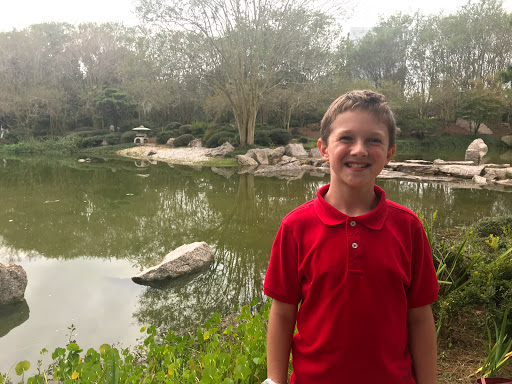The Covid pandemic has created a dire need for a cure. As I write this a vaccine is hours away from the first delivery to states, and plans seem to indicate health care workers are at the top of the queue, as they should be. As I sit here trying to type with my dominate arm in a cumbersome sling, the result of surgery to repair a torn tendon in my rotator cuff, my mind is on healing every minute of the day. No doubt healing of body, mind, and spirit is on all of our minds. Two friends from my youth have sadly died of Covid recently, and reports of suicide in light of failing businesses, long lines of cars waiting for boxes of food, general pandemic weariness, and staggering numbers hospitalized with the virus in every state all point to the urgency of returning to health on all fronts.
My own desires for recuperation coupled with my love of Greek mythology have prompted the introduction of my latest Lambent Literacy word, actually a name that no doubt will find itself in metaphorical allusion. Let me acquaint you with the Greek god of healing, Aesculapius, son of Apollo and the beautiful mortal maiden Coronis of Thessaly. A white raven was the hapless messenger of her unfaithfulness to him, and Apollo, in a fit of rage punished the bird by turning his feathers black. He also had Coronis killed and laid upon the pyre. Picture this: Apollo jumps on the pyre and cuts the unborn child from the womb. You can imagine the legacy poor Aesculapius had to endure, receiving the name that means "to cut open." And he obviously took it to heart, but he became such a famous healer that the Greek gods were so jealous of his ability to raise the dead to life that Zeus struck him with a thunderbolt. No mortal was allowed to have such power, not even a demigod. As a child Aesculapius lived with the centaur Kheron who instructed him in the art of medicine. Because Aesculapius had an interest in snakes and was often seen with them, the medical culture we know today chose the symbolic emblem of snakes wound around a staff to represent their profession. Before you think this is a little creepy for a man of medicine, it is important to remember that snakes, who shed their skins, represent regeneration.
Although it is believed that Aesculapius was actually a real doctor in Greece, he is generally thought to be a demigod, half mortal and half god. It is with this fiction that I want to address the notion of not only healing but also of metaphorically raising from death to life the most important aspects of our lives.
It is now possible that the coronavirus vaccine will be in the arms of many healthcare workers and nursing home residents this week. Doctors are predicting that Americans who want the vaccine may have access to it by late spring. They also caution that 70 per cent of the population must be vaccinated to insure herd immunity and a path to our former lives--churches, businesses, schools and social lives back in business.
Scientists, however, also warn that December through February may possibly be the darkest days for the pandemic, stemming from holiday celebrations. So the question on everyone's mind is what do we do while we're waiting?
Is it synchronicity that, as the pandemic rages on, these four weeks before Christmas are known as the season of Advent, a period of reflection and symbolic waiting for the birth of Jesus? Perhaps our celebration of Advent is part of the healing we need--slowing down and reflecting on who we are, what we need to survive this time of darkness. It is in this season that we hear these words from The Book of Common Prayer, First Sunday in Advent: Almighty God, give us grace that we may cast away the works of darkness and put upon us the armor of light...
While we rely on therapeutics and vaccines in these dark days, not even modern medicine can heal what often ails us: loneliness and despair. Social distancing doesn't help, and although it seems like a panacea to say just have faith and everything will work out, what we believe in and how we live in love can transform us. Maybe putting on the armor of light can revive us from the metaphorical demise of the people and things from our former lives that we long for.
My sister Sarah and our friends recently joined a Face Book page called Hygge Life, based on the Danish concept of comfort, peace, and the simple joys of life. The administrator of the page forbids negativity and blocks it when necessary, which is almost never. The most stunning revelation about this site is the open receptiveness to friendships and advice. Hundreds of people respond to posts with ideas and suggestions for finding comfort. Both men and women are members of this page in which kindness overflows from people of enormous generosity to people struggling through the pandemic. Kindness is so infectious that it gives members a little more faith to get them through each day.
Aesculapius was honored for his skill even after his death. For hundreds of years the sick and dying came to his temples for healing, and thousands had faith that they would be healed. Despite the miracles of modern medicine, how often do we rely on our beliefs in hope and faith for our emotional and spiritual healing? We may be getting the vaccine in a few weeks or months, but faith is a lot like chicken soup. A big dose of it couldn't hurt.

















































